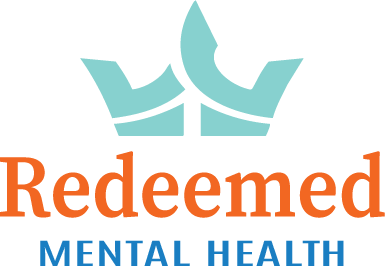 Welcome to another enlightening post on Redeemed Mental Health, your trusted source for expert mental health care. Today, we’re diving deep into the world of Partial Hospitalization Programs (PHP). Buckle up for an informative (and surprisingly fun) journey!
Welcome to another enlightening post on Redeemed Mental Health, your trusted source for expert mental health care. Today, we’re diving deep into the world of Partial Hospitalization Programs (PHP). Buckle up for an informative (and surprisingly fun) journey!
What is a Partial Hospitalization Program (PHP)?
A Partial Hospitalization Program, or PHP as it’s commonly known, is a type of outpatient treatment program. It’s designed for individuals experiencing significant mental health symptoms. Now, you might be thinking, “Hospitalization that’s only partial? What’s that about?” Well, imagine having the intensive care provided in a hospital setting, but you get to sleep in your own bed at night. Sounds pretty good, right? That’s PHP for you!
The Structure of a PHP
In a PHP, your day is planned out with various therapeutic activities. It’s like going to school, but instead of algebra and history, you’re learning how to manage your mental health. And the best part? No pop quizzes!
A typical day in a PHP might include individual therapy, group therapy, and educational sessions. You’ll have a schedule to follow, which provides a comforting routine while you’re working on your mental health.
Benefits of PHP
Structured Therapeutic Environment
One of the key benefits of PHP is the structured therapeutic environment it provides. This is just a fancy way of saying it’s organized and predictable. And when it comes to mental health, predictability can be a real game-changer.
In a PHP, you know what to expect each day. You know when your therapy sessions will be, when you’ll have time for lunch, and when you can relax and process what you’ve learned. This structure can help reduce anxiety and make the treatment process feel more manageable.
Access to Specialists
With PHP, you get access to a team of specialists. It’s like having your own Avengers team, but instead of fighting aliens, they’re helping you fight mental health issues.
These specialists might include psychiatrists, psychologists, social workers, and occupational therapists. They work together to provide comprehensive care, addressing all aspects of your mental health.
Real-World Skill Practice
Another major benefit of PHP is the opportunity to practice new skills in a real-world setting. It’s like a rehearsal for life, but with a safety net.
During your therapy sessions, you’ll learn a variety of strategies and techniques to manage your mental health symptoms. But learning these skills is only half the battle – the real test is applying them in your day-to-day life. PHP gives you the chance to practice these skills while still having the support of your treatment team. It’s like learning to ride a bike with training wheels before you go out on the open road.
PHP vs. Other Treatment Options
Now, you might be wondering, “How does PHP compare to other treatment options?” Well, let’s break it down.
Inpatient programs, as the name suggests, involve staying in a hospital or treatment facility. They provide round-the-clock care and are best suited for individuals with severe symptoms that require constant monitoring.
On the other hand, Intensive Outpatient Programs (IOPs) are less intensive than PHPs. They typically involve attending treatment sessions for a few hours a day, a few days a week.
PHPs fall somewhere in the middle. They provide a higher level of care than IOPs but are less disruptive to your daily life than inpatient programs. It’s like the Goldilocks of mental health treatment options – not too hot, not too cold, but just right!
Who is a Good Candidate for PHP?
PHP is a great option for individuals who need more support than traditional outpatient therapy can provide but don’t require the intensive care of an inpatient program. It’s like the middle child of mental health treatment options – often overlooked, but with unique benefits of its own.
If you’re struggling with significant mental health symptoms that are interfering with your daily life, PHP might be a good fit for you. However, the best way to determine if PHP is the right choice is to consult with a mental health professional. They can assess your needs and help you decide on the best course of treatment.
Conclusion
 So there you have it, a comprehensive guide to understanding the benefits of PHP. Remember, mental health is a journey, not a destination. And PHP might just be the vehicle you need to get you there. So buckle up, and enjoy the ride!
So there you have it, a comprehensive guide to understanding the benefits of PHP. Remember, mental health is a journey, not a destination. And PHP might just be the vehicle you need to get you there. So buckle up, and enjoy the ride!
If you or a loved one are struggling with mental health issues and think a Partial Hospitalization Program might be the right fit, don’t hesitate to reach out. Our team of mental health professionals at Redeemed Mental Health is ready to help guide you on your journey towards wellness. Remember, asking for help isn’t a sign of weakness, but a strength. So why wait? Take the first step towards reclaiming your mental health today. Contact us to schedule an appointment and let’s explore how our PHP can benefit you. Your journey to redemption starts here.
Frequently Asked Questions
Inpatient programs involve staying in a hospital or treatment facility, providing round-the-clock care. PHPs, on the other hand, are outpatient programs. You attend treatment during the day but return home in the evening. It’s like going to school versus living in a dormitory – both can be effective, but they offer different experiences.
PHPs typically use a variety of therapeutic approaches, including individual therapy, group therapy, and family therapy. You might also participate in educational sessions or skills workshops. It’s like a buffet of therapy options – there’s something for everyone!
PHP is a good fit for individuals who need more support than traditional outpatient therapy can provide but don’t require the intensive care of an inpatient program. However, the best way to determine if PHP is the right choice is to consult with a mental health professional. They’re like the guidance counselors of the mental health world – they can help you navigate your treatment options.

























